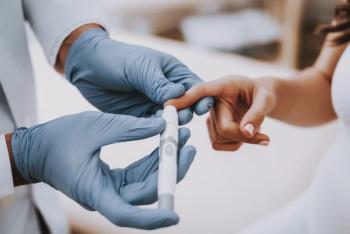
Pharmacist Involvement Enhances Value-Based Oncology Care
Many opportunities exist for pharmacists within the multidisciplinary care team to ensure the delivery of optimal cancer care.
A new white paper urges pharmacists to engage in value-based oncology care, and demonstrates how the pharmacy team can help patients with cancer via financial assistance, treatment optimization, clinical pathways, and quality metrics.
The Hematology/Oncology Pharmacy Association (HOPA) and the Academy of Managed Care Pharmacy (AMCP) convened a forum last year to discuss the use of value-based care models in oncology, emphasizing the importance of pharmacist involvement in implementing value-based care at their institutions. The resulting white paper was recently published in the
“Ample opportunities exist for pharmacists within the multidisciplinary care team to fully engage with physicians, patients, and payers to ensure the delivery of high-value oncology care,” wrote Bernadette B. Heron, PharmD, BCOP, chair of the forum and manager of the National PBM Clinical Pharmacy Program with the Department of Veterans Affairs, and colleagues.
Clinical and health system pharmacists can play an important role in directing patient care, empowering physicians in the use of clinical pathways, assisting in end-of-life care, suggesting clinical study design, and enrolling patients in clinical trials, the paper said.
The financial benefits to institutions are undeniable, as increased pharmacist involvement in clinic activities such as assessing laboratory tests, ordering tests, and managing patients enhances efficiency and helps to manage patient volume, according to the authors.
“Pharmacists can work with providers to help select the best treatment plan for each patient and ensure that drugs within the plan are appropriately dosed and supportive care is provided. Meeting with patients to provide education regarding their treatment, monitoring plan, and management of potential adverse effects is an important part of the overall treatment plan and can minimize complications for patients when they are sent home,” the authors wrote.
Attendees at the HOPA/AMCP forum also advocated for the important role of pharmacists in assisting physicians and patients with navigating the financial hardship related to the cost of cancer treatment.
“Financial difficulties that patients with cancer encounter as drug costs rise (now known as financial toxicity) were associated with psychological distress, delayed access to subsequent care, nonadherence to treatment, and a negative impact on treatment outcomes,” they wrote.
Pharmacists may also propose oncology-specific formulary management strategies to assist with coverage decisions and drive the use of cost-effective drug therapies.
In addition, pharmacists and pharmacy team members can assist with clinical pathways and meaningful quality metrics. A retrospective multicenter cohort study evaluating the implementation of clinical pathway programs demonstrated a 35% reduction in patient costs among adhering physician practices compared with other practices, the authors wrote.
“Pharmacist skills are required to develop and update pathways, as well as to establish a schedule for pathway formulary reviews as new data for existing and novel therapies emerge and guideline updates are published,” the white paper said. “Pharmacists monitor and audit physician utilization and adherence to pathways and evaluate clinical data for the utilization of off-pathway drugs in special populations.”
“In today’s clinical practice, the capabilities of learning health systems remain suboptimal. Pharmacists can fill in gaps in different areas of data analysis, collaboration within the multidisciplinary healthcare team, research, and quality improvement,” the authors concluded.
Reference:
Fares M, Atienza S. Value of cancer care forum: pharmacy call to action. JHOP. August 2020. http://www.jhoponline.com/jhop-issue-archive/2020-issues/august-2020-vol-10-no-4/18302-value-of-cancer-care-forum-pharmacy-call-to-action
Newsletter
Pharmacy practice is always changing. Stay ahead of the curve with the Drug Topics newsletter and get the latest drug information, industry trends, and patient care tips.























